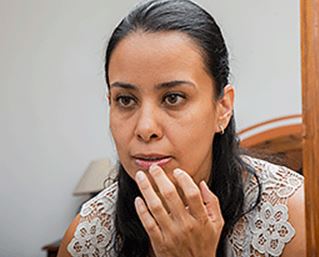Skin cancer is a major concern for Charlotte dermatologists. The skin is the largest organ in the body and performs important functions like protecting the body from injuries, and infection. It is made up of a large variety of cells. Examples of these cells are Round Basal cells, Melanocytes cells, Squamous cells, and Merkel cells. When these cells begin to grow abnormally, skin cancer happens.
The type of skin cancer developed depends on where the cancer begins, i.e., which cell is infected. Fortunately, skin cancer is not contagious. However, each type of skin cancer is serious and varies in treatment.
For example, the skin cancer that develops in the basal cells is called Basal cell carcinoma. The one that develops in the squamous cell is called Squamous cell carcinoma; Merkel cell carcinoma is formed from the Merkel cells and Melanoma is formed from Melanocytes (the melanin cells).
Skin cancer is very common in America. Research has shown that about 2,000 people in the US are diagnosed with Merkel cell carcinoma each year. Also, there are about 5.4 million cases of basal cell carcinoma diagnosed each year. In this article, you will know about the different types of skin cancer.
Types of skin cancer
1. Basal cell carcinoma (BCC)
This type of cancer is developed in the basal cell and is the most common type of skin cancer. More than 80% of skin cancer in humans is Basal Cell Carcinoma. Basal cells are found in the lower epidermis – the lower layer of the skin. They are round in shape and mostly develop on the head and neck.
The major cause of Basal Cell Carcinoma is frequent exposure to the sun. Although they mostly develop on the neck and head, they can also develop on other parts of the body that receive the most sun, as long as basal cells are present in that region.
If not treated on time, BCC can grow deep which can cause serious damage once it reaches the nerves and bones and penetrates them. However, BCC rarely spreads because they grow slowly. But early detection is still key, there is also a high risk of having recurring BCC at the same spot as the previous one.
You should visit a dermatologist bi-monthly to check for any symptoms, especially if you spend the majority of your time outdoors. If after you have been treated for BCC, you should still go in for a checkup.
2. Squamous cell carcinoma (SCC)
As the name says, it is formed in the squamous cells — the cells at the outer layer of the skin. Like Basal cell carcinoma, they are also caused by consistent exposure to the sun. They develop on the face, neck, ear, hands, and other sun-exposed parts of the body.
Squamous cell carcinoma is slow to grow and spread, but they are more likely than BCC to grow further. Although SCC can affect any skin, people with lighter skin have a higher risk of getting it than those with darker skin. Other risks include burning on the skin, use of harsh chemicals that affect the skin, and frequent exposure to x-ray.
A frequent bi-monthly visit to the dermatologist for checkups would help detect any developing cancer.
3. Melanoma
Unlike the other two cancer types, Melanoma is deadly. This type of cancer is developed on the melanocytes — the melanin-producing cells. They are the fourth most common type of skin cancer in the world. Melanoma is more common in white skin than in black skin.
As you grow older, your chances of getting Melanoma increase by 1%. Melanoma develops at the deepest layer of the epidermis. When the melanocytes grow out of control, a cancerous tumor is formed. This tumor can grow and spread all over the body. Unlike the other previous skin cancers, it can grow anywhere in the body; from the eye to the legs, the genitals, the hands, and so on.
Early detection is still the best when it comes to treating cancer. Once identified early, Melanoma can be treated with surgery.
Skin cancer expert dermatologist in Charlotte, NC
Skin cancer, if not detected early, can lead to death. Melanoma accounts for 1% of deaths in America. To be on the safe side, book an appointment with a professional dermatologist to make sure you are not at a high risk of getting it.
The dermatologist would give you advice on how to protect your skin from cancer-causing agents. If cancer is detected early enough, an appointment would be booked for a surgery day. Contact Dermatology Specialists of Charlotte, Charlotte’s top Ballantyne and Blakeney Dermatologist, for your dermatology care.

